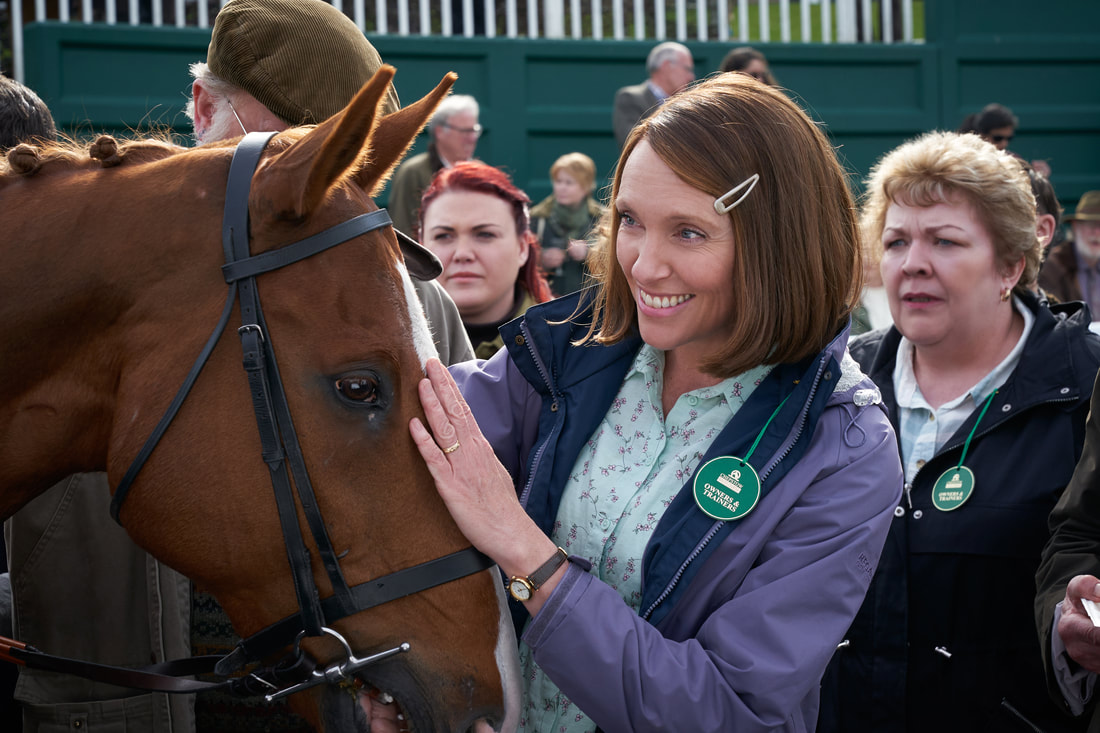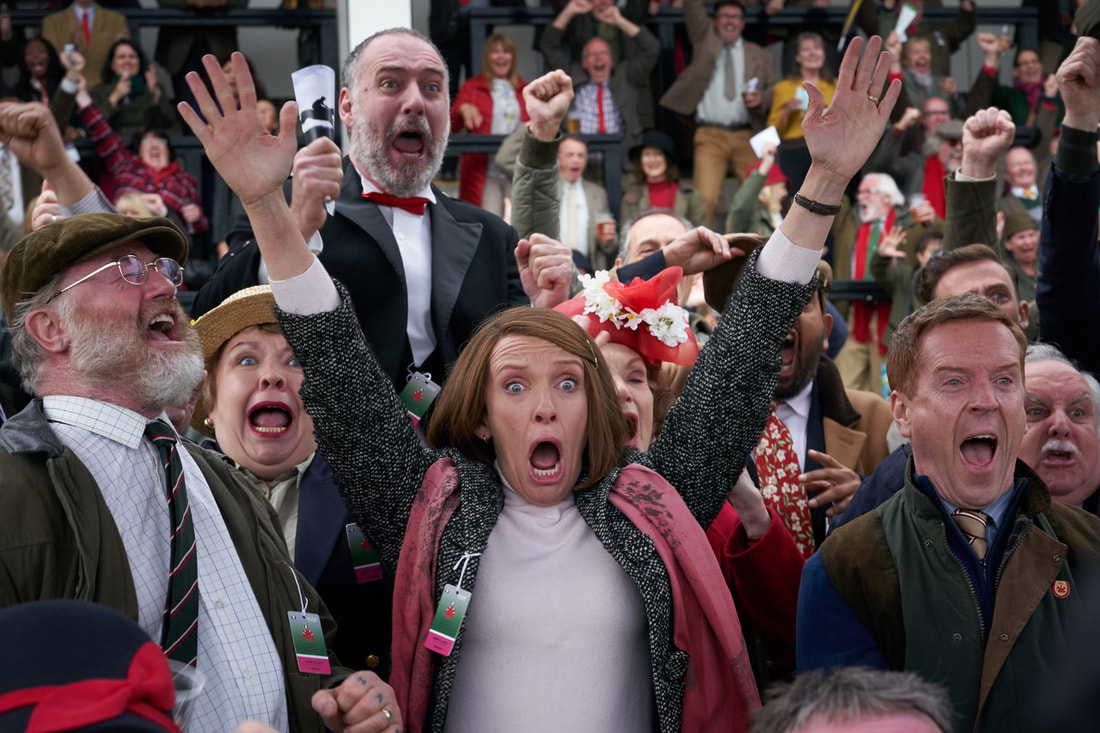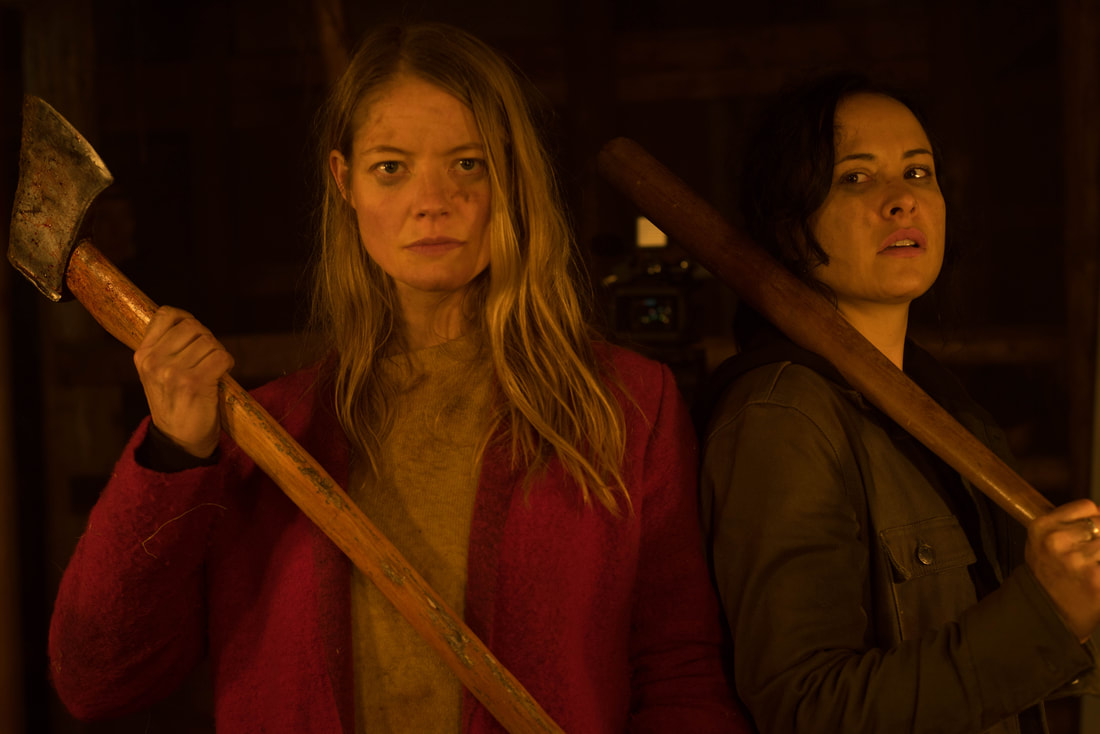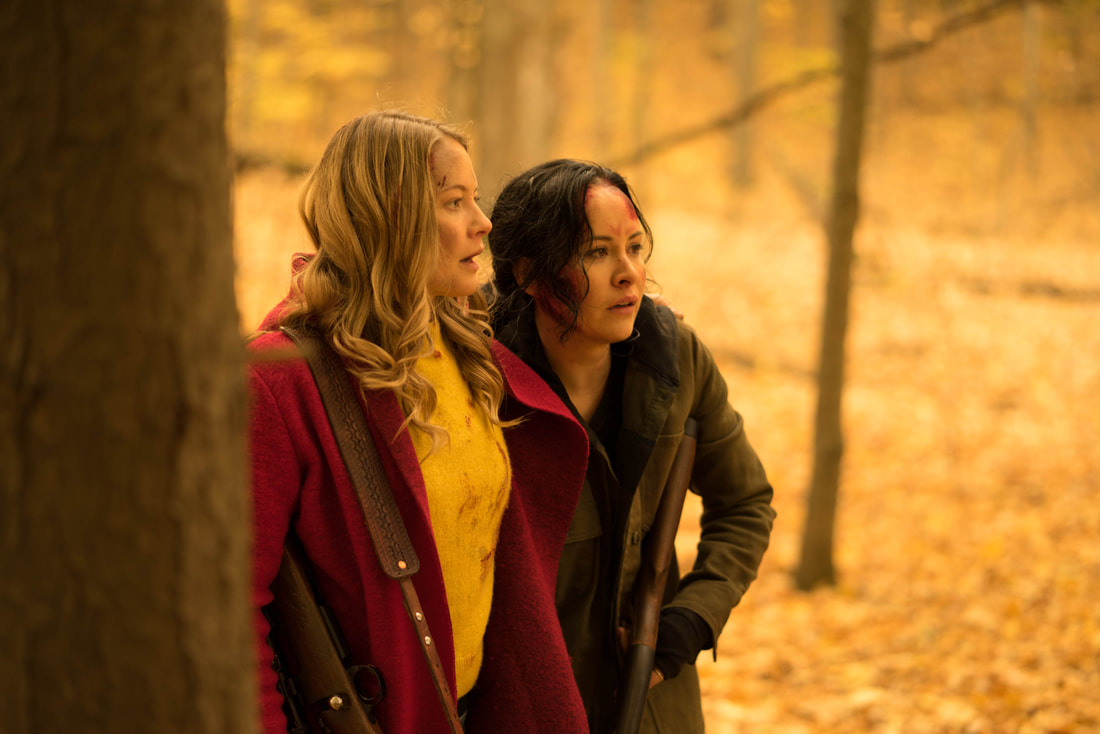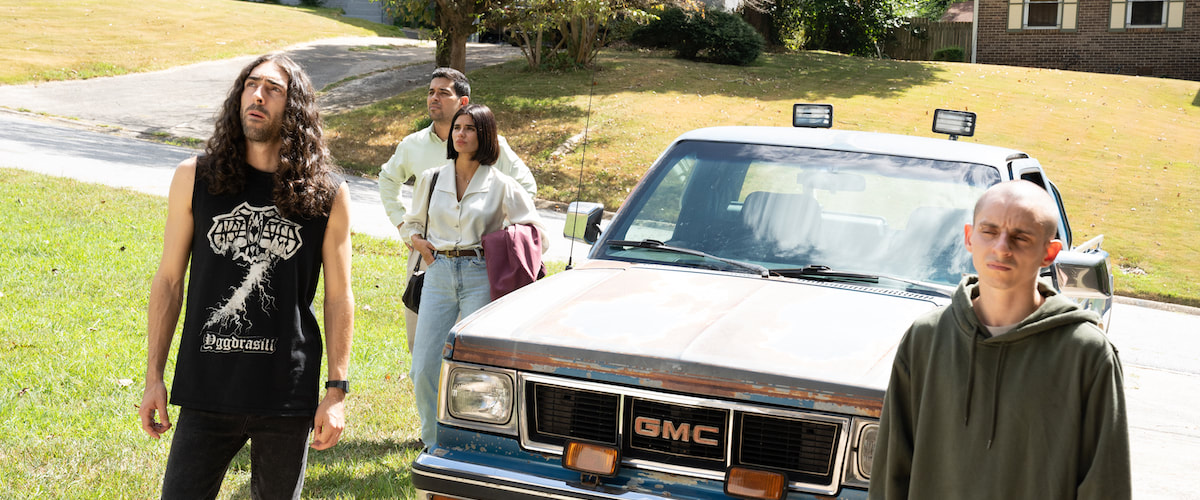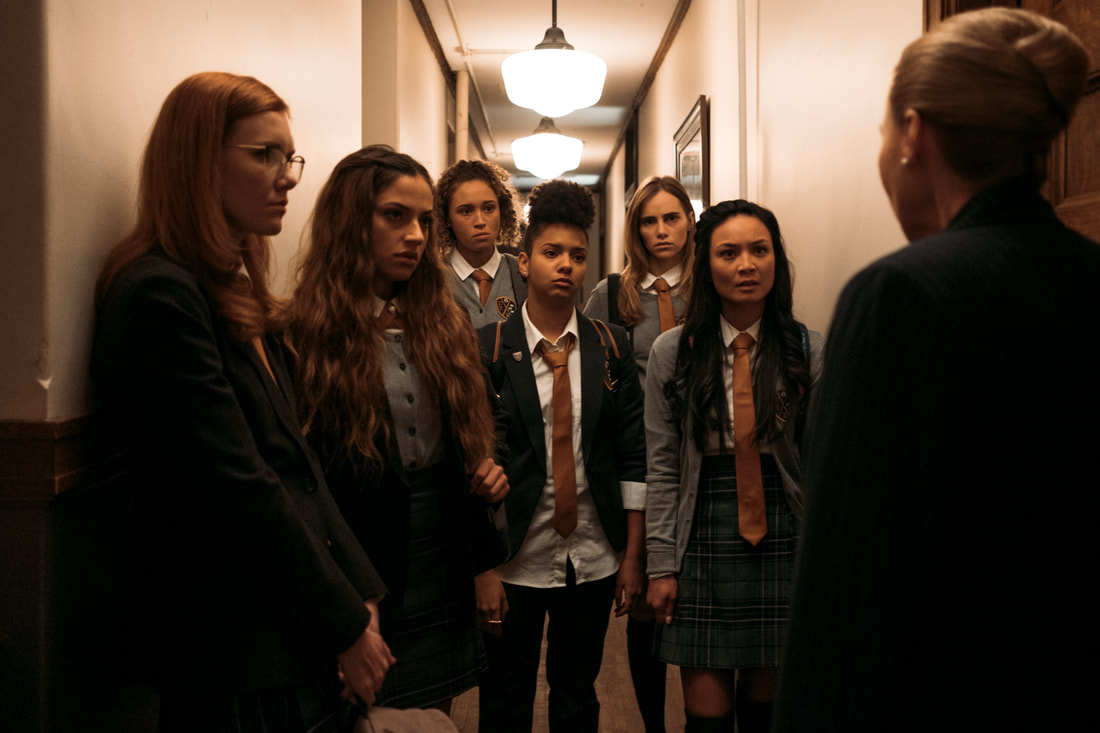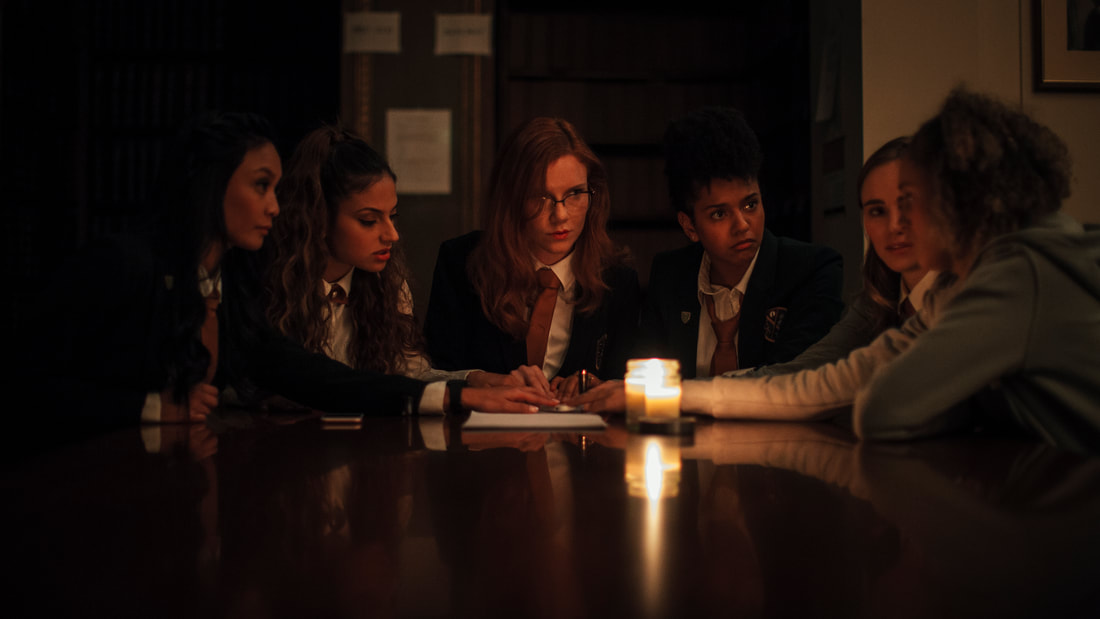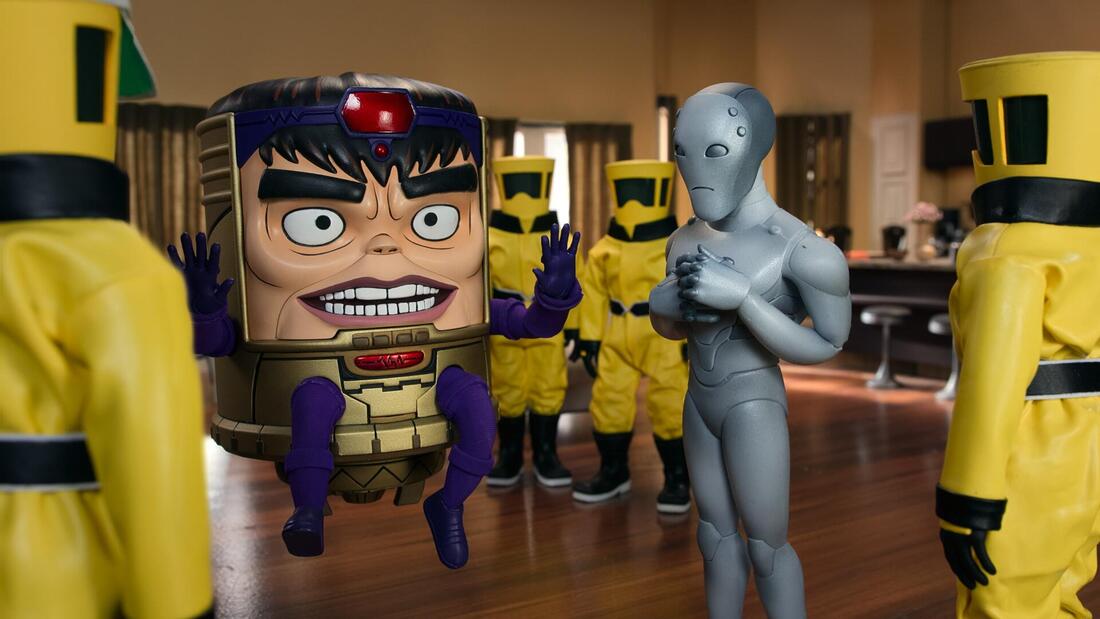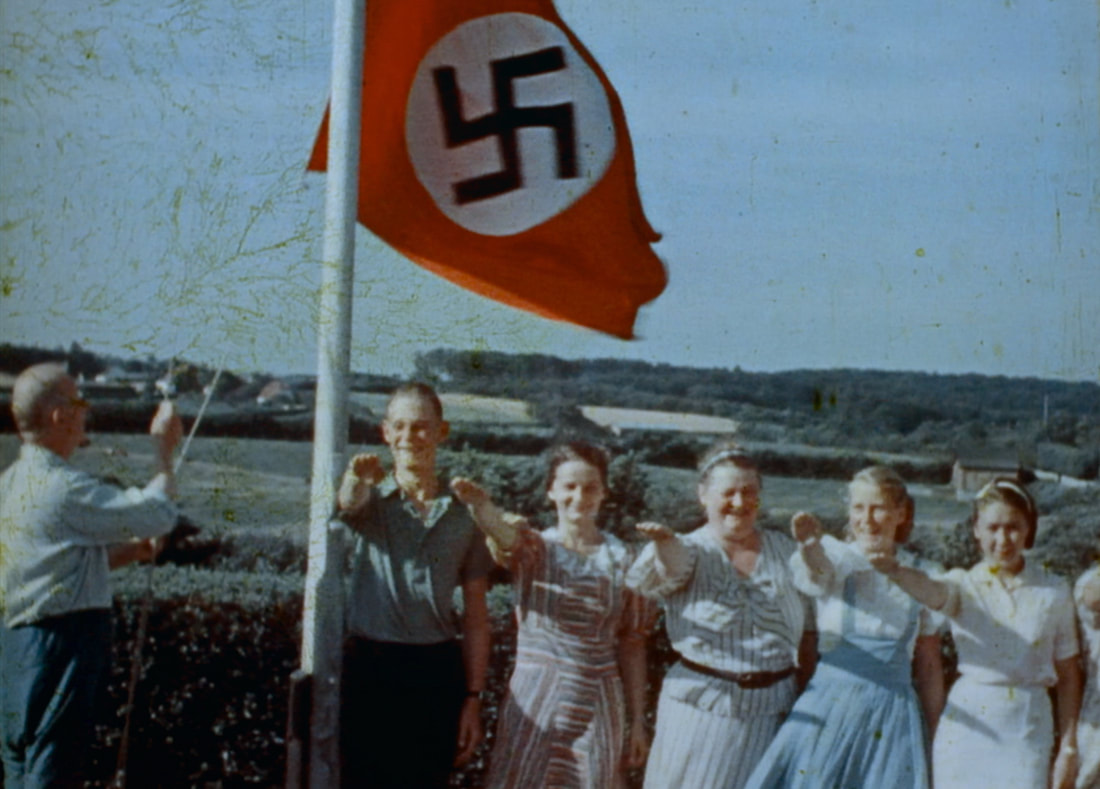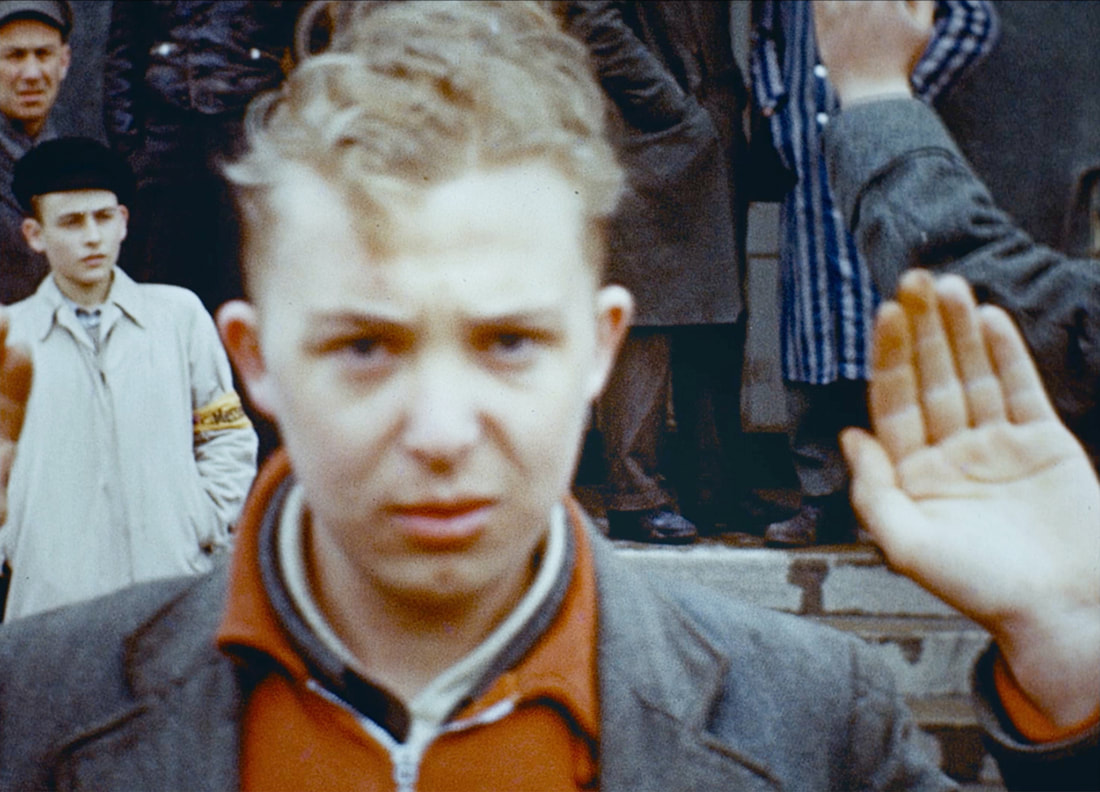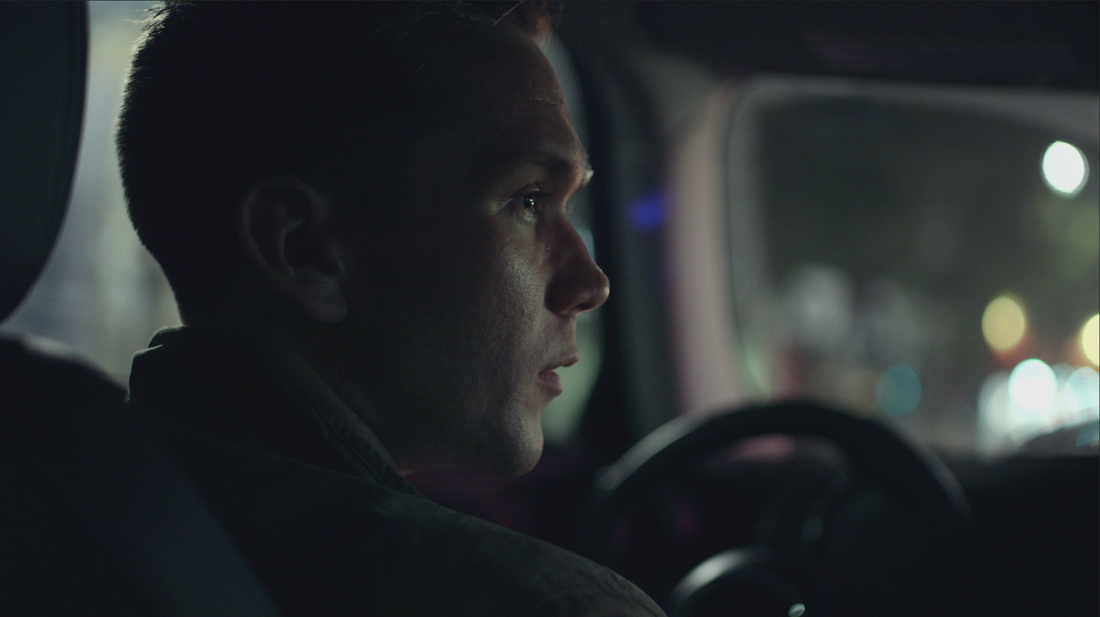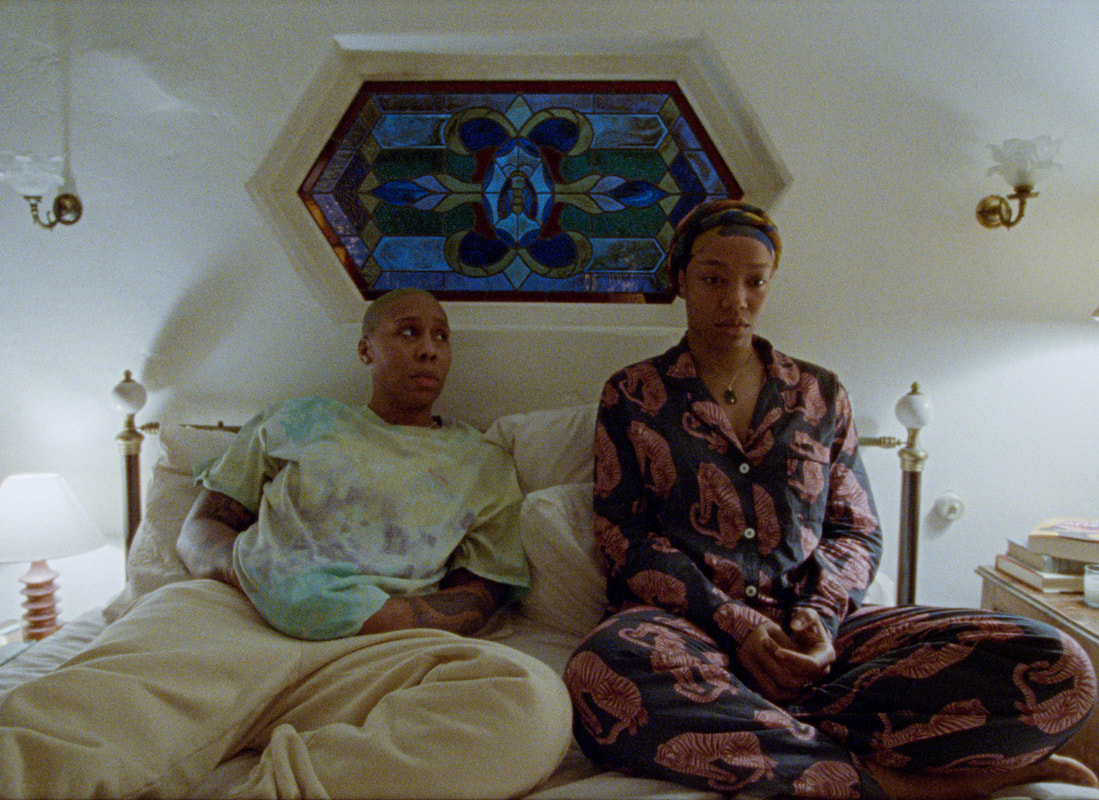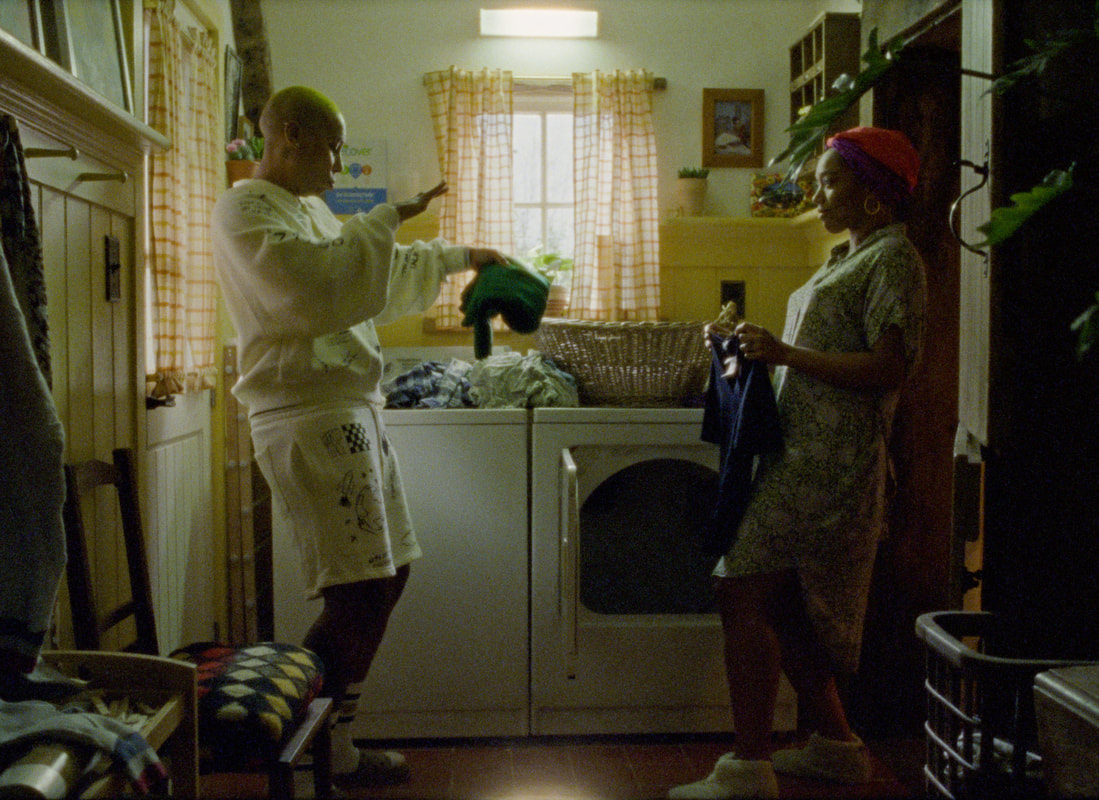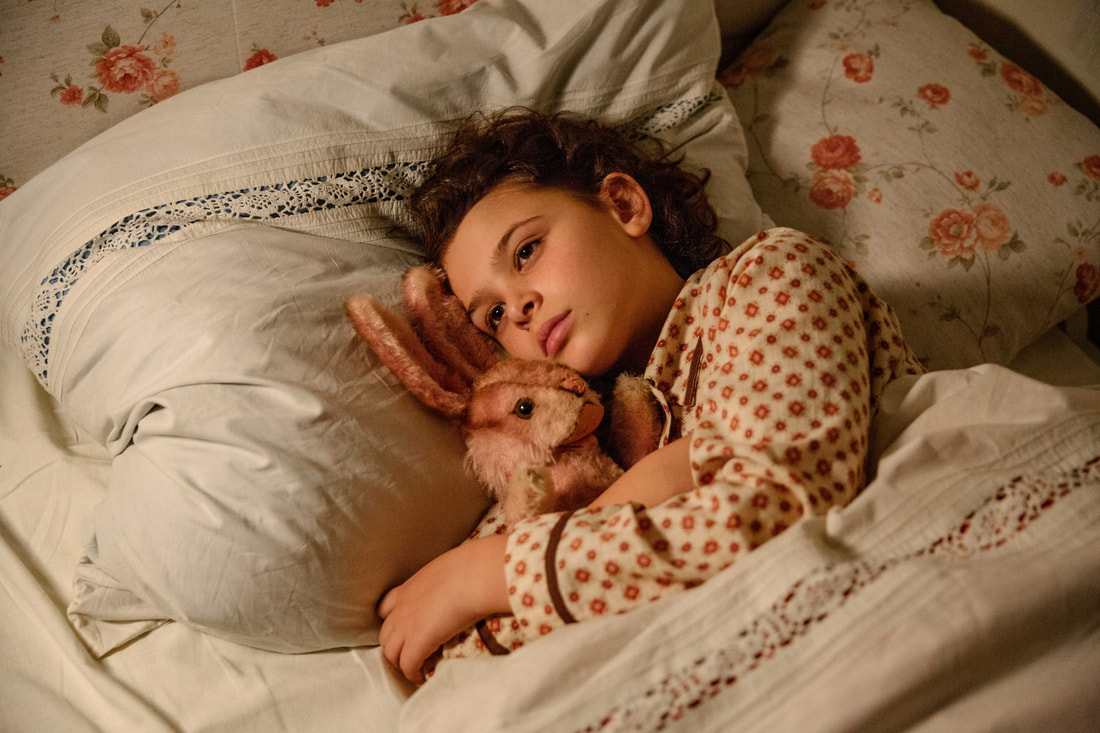|
Review by Sean Boelman
Dream Horse is the type of uplifting drama based on a true story that seems tailor-built to be a crowd-pleaser, and for the most part, it succeeds. Generally adorable, even if it is pretty unexceptional in most regards, few people will love this film but it’s also nearly impossible to dislike.
The movie follows a Welsh community who decides to breed a race horse in the hopes of making it big. It’s another horse racing underdog story, a niche already met by better films about more notable horses. It hits all of the expected beats in a way that is effective or satisfying, if not particularly original. One of the issues with the movie is that it doesn’t have much of a regard for a clear timeline. It feels like the film is jumping from one major event to the next without leaving any time for there to be a deeper level of character development. It has more emotional complexity than the Wikipedia article on Dream Alliance, but the story isn’t much deeper. The messages that the movie offers about being dedicated to one’s dreams and coming together as a community are nice, albeit not the most profound. For a film meant to shallowly inspire, it’s good enough — a tale of a group of everyday people who beat the odds in order to achieve something greater.
Neil McKay’s script does a good job of developing the central character, but fails in exploring anyone else. The rest of the community is made up of straightforward stock characters whose purpose is to serve the development of the protagonist. Perhaps even more frustrating is that the jockeys that ride Dream Alliance are basically a non-factor in the movie.
Toni Collette does a good enough job in her lead role, but there isn’t anything particularly special about her performance. It’s a straightforward role in a simple film, and she is more than likable enough to make it work. No one in the supporting cast really gets a chance to shine, even Damian Lewis, who is supposedly the main supporting player. As a whole, the movie looks fine, but with horse racing movies, there is a lot more that could be done. This is shot like a sappy drama rather than a sports flick, and as a result, the races themselves aren’t that exciting. Instead, what we get are a series of plain, if pretty-looking, sequences in desperate need of some kineticism. Dream Horse is a competent and inoffensive film all-around. For those who are looking for a wholesome and encouraging time at the movies, this conventional underdog tale certainly fits that bill. Dream Horse is now in theaters and hits VOD on June 11. Rating: 3.5/5
0 Comments
Review by Sarah Williams
Seemingly positioned to be the annual male-gazey low-budget horror advertising lesbian leads that inevitably turns up on VOD every year, The Retreat surprises by taking tired slasher tropes and instead giving the power back to its leads. A fairly straightforward cabin in the woods meets The Most Dangerous Game romp is gory, yet has a bleeding, beating heart beneath the surface.
Sarah Allen and Tommie-Amber Pirie star as new couple Valerie and Renee, who spend a weekend at a Canadian bed & breakfast, enticed by a professed atmosphere of inclusion, and the friendly gay married hosts that are advertised, on a trip to help plan a wedding. What they find, however, is a trap many before them have fallen into, where hunters are out for blood, and they have to fight their way through the night. So much queer horror exists in character only, not commentating on any intersection between identity and the coming action, or worse, does so in a ham-fisted manner. The Retreat is an oddly clever take on the ‘rainbow-washing’ brands use to obtain a niche of customers, plastering on a facade of acceptance, pride, and solidarity just to corner another niche of the market without any radical action of tangible support. Here, it’s not just quarters spilled, but blood.
Hunters out for blood of the visitors, prominently a gay audience drawn in by promises of community, await them, and a You’re Next-style slasher progresses. It's formulaic at times, and sometimes falls into some predictable story beats, but solidly bloody. Though a clever social satire, there are some moments that feel like they’re poking fun at the class of some of the ‘white trash’ locals, but this isn’t exactly unusual in genre film. Allen and Pirie have an easy chemistry, and its lovely to watch their relationship strengthen through the night. Both play atypical final girls, smart and well-versed on the classic horror movie mistakes, and its nice to have heroines who act like they’ve seen Halloween and Scream at minimum.
What elevates The Retreat is the potential secondary metaphor, that it can be read as a satire of how queer horror fans are baited with promises of seeing ourselves onscreen, only to be mocked, fetishized, or have the characters placed there for us brutally slaughtered at the start. I’d worried this would be exactly like so many of these films, only to be pleasantly surprised that the gays get to win, and poke fun at this a bit in the end. The Retreat is now available on VOD. Rating: 3.5/5
Review by Sean Boelman
One of the most frustrating things about the coming-of-age genre is that, even though these films are about a protagonist coming into their own, they are all too often unable to do their own thing. Blast Beat certainly has some noble ambitions, but it gets a bit too caught up in conventions to live up to its potential.
The movie follows a teenage metalhead/science prodigy who sets out to achieve the American Dream along with his Colombian immigrant family. There have been plenty of really powerful films about people pursuing a better life in America, and Esteban Arango’s feature debut threatens to join their ranks at multiple occasions but always redirects before it can go anywhere. Perhaps the biggest issue with the movie is that it is trying to juggle too many things. The protagonist is struggling with his identity as an immigrant, a metalhead, and a scientist, but the script doesn’t do a good enough job of exploring the clash between his various passions and obligations. There really aren’t enough immigrant stories committed to the screen, and so this is a step in the right direction in that regard, but there are still more nuanced ways to explore these themes. More often than not, the immigrant-centric parts of the story are tear-jerking rather than a genuine way of addressing the topic.
Something that is a big let down in the film is the lack of development to the central brotherly dynamic. At a certain point, the movie becomes much more interested in the protagonist than his brother, coming at the expense of the audience’s connection to the film. Although the central arc is well-written, the rest of the characters could have used a lot more work.
There is also something left to be desired in the metal portion of the storyline. This isn’t quite a music movie because the music ends up becoming a comparatively insignificant portion. Had this been a bigger focus of the script, with the addition of a killer soundtrack and a bit more style, this could have felt a lot more distinctive. That said, the acting in the movie is genuinely strong. Real-life brothers Mateo and Moses Arias obviously have a great deal of natural chemistry, which goes a long way in making the film tick. The supporting cast is also very good, with solid turns from Daniel Dae Kim and Wilmer Valderrama. Blast Beat has some very strong acting that prevents it from being an entirely forgettable entry in the genre, but it shows a lot of promise on which it can’t deliver. We need more movies like this, just with a greater sense of originality. Blast Beat is now available on VOD. Rating: 3/5
Review by Sean Boelman
Simon Barrett has written some really great horror films in the past, so it’s understandable why horror fans would be excited for his feature directorial debut. Seance starts off really strongly, but by the end, it becomes clear that it isn’t nearly as smart as it thinks it is, settling for a lot of B-horror tropes.
The movie follows a young woman who arrives at a prestigious private school after the death of a student as the school is stricken by a string of tragic occurrences. It’s ultimately a very convoluted approach to a story that isn’t that complex, with lots of red herrings and misdirections meant to throw the audience off but which really just draw the viewer out of the film. For much of the first half, the movie is driven by the atmosphere more than anything else, with Barrett’s directorial style doing a lot of the heavy lifting in making the film entertaining. When it becomes more mystery-heavy heading towards the end, it’s a lot less satisfying if only because it is very predictable. Visually, the movie is much stronger than a lot of B-movies, seemingly because of Barrett’s appreciation for the genre. The style feels like a wonderful throwback to horror classics and proves that Barrett is just as gifted behind the camera as he is behind the typewriter. And the kills, while brief, are impressively executed.
That said, in trying to juggle so many different elements, the film fails to fulfill one of the basic needs of the horror genre, and that is a strong message. It often feels like the movie was made more for the purpose of experimenting with style and tropes as opposed to being a cohesive and satisfying picture of its own.
The character development is one of the biggest weaknesses of Barrett’s script. The film follows this central group of girls, but all of them are depicted as pure archetypes. And in trying to force motivations into the final act, the movie completely fumbles anything that could be considered an interesting character arc. Lead actress Suki Waterhouse basically carries this film on her back, delivering the only performance that is even somewhat subtle. Although the rest of the cast fits their roles well, they are all giving turns that feel over-the-top. This is particularly the case with Madisen Beatty, who is trying altogether too hard here. Seance is a passable horror flick, one that is much more inspired than a majority of its peers, but it still has a lot of issues. Regardless, the demand for this type of movie is consistent, so it will find its audience. Seance is now in theaters and on VOD. Rating: 2.5/5
Review by Sean Boelman
Although the Marvel television shows that have gotten the most buzz have come from Disney+ (and previously Netflix), there are other content-makers putting out great Marvel-based content. Streamer Hulu is behind the adult animated show Marvel’s M.O.D.O.K. which, while lacking the bite of the medium but still somewhat edgy, is entertaining when it is allowed to do its own thing.
The series follows genius supervillain M.O.D.O.K. as he struggles to balance family life with his corporate plans to take over the world. A lot of it plays out like a sitcom, certain portions even feeling like an animated workplace comedy, but these bits of parody are nowhere near as effective as the dark humor that flows through a few of the episodes. There is a very nice flow to the season, each of the ten twenty-five minute episodes building nicely into a compelling overall arc, yet having compelling individual conflicts of their own. Admittedly, this batch of episodes does peak early though, with the third episode being the funniest of them all. A recent trend in comic book media has been to turn villains into anti-heroes, and some examples are more successful than others. Although M.O.D.O.K. is a compelling character, there was still a lot of room for his inner arc to be explored. Unexpectedly, the villainous corporate pencil-pusher has a more complete and satisfying development than the eponymous character.
If there is something left to be desired by this show, it is that there isn’t enough world-building. One of the great things about animation is that it can be expansive and creative. Apart from two or three episodes that tie in characters from other worlds, the series doesn’t do much in that regard. It feels like another superhero property, just in an animated format.
That isn’t to say that the series doesn’t look good — the animation style is great and can create a sense of humor even when the writing is lacking in laughs. And there are a few really strong set pieces, including the big epic one in the finale, that are quite fun to watch thanks to the energy of the visual style. Of course, the voice cast is also a highlight of the series. Patton Oswalt gives a memorable turn as the titular B-grade supervillain, elevating the character from the ridiculousness of the comics into something genuinely fun. And in the supporting cast, Aimee Garcia, Ben Schwartz, and Beck Bennett all do a great job. Marvel’s M.O.D.O.K. may not quite break out of the Marvel mold to deliver truly great adult animation, but it’s a step in the right direction. It’s undeniably fun, and the level of passion the cast and crew have for the project is infectious. Marvel’s M.O.D.O.K. streams on Hulu beginning May 21. Rating: 4/5 Reviewed by Adam Donato History is one of the most important subjects. Final Account exhibits a collection of first-hand accounts from actual Hitler Youth, now in old age. They talk about their experiences, their jobs, and more importantly their reflective feelings about what they participated in. This documentary is obviously depressing in many ways but is a necessary part of history for people to learn about. Directed by Luke Holland, there is plenty of purposes and remorse showcased here. One of the most insane parts of history when regarding the Holocaust is the fact that some people deny that it happened. This is addressed in the documentary by people who were actually there and to see their reactions is heartbreaking. It gives this telling of the story purpose as members of the S.S. talk about what they did, all over pictures of real-life places where all of this happened. Tastefully enough, nothing too gruesome is shown until the end. Here is an admittance by people responsible for one of the greatest human atrocities ever committed. Responsibility is a funny word in this context. One of the heaviest questions addressed in the documentary is whether or not their complicity in this event makes them perpetrators. This is certainly the most emotional and compelling part as it's a double-edged sword of a question. They participated in what happened, but there is a case to be made that they had no choice for they would’ve been persecuted themselves if they didn’t follow in suit. There is a lot to be said about humanity here. The interviewees explain why they got into it in the first place and how they were ignorant in their faith. Most condemn what happened and their part in all of it, but one of the more interesting aspects is seeing some of them justify themselves. They see what they did as accomplishments and deny to face the reality of the situation.
The music in the documentary is very sad. There are a lot of long shots of locations of important events that took place. The combination of these things after hearing deeply reflective and poignant recounts is haunting. There is plenty of time to sit in what was said and imagine the horrifying things that took place. Definitely the type of movie that makes one reflect on the world and appreciate the time we live in today. Hopefully, this doc will help be a time-capsule where people recognize the impact that something like this has, not only on the victims and the world, but it’s something they have to live with for the rest of their lives. Final Account is certainly a bleak affair. Nobody likes reexperienceing one of the greatest human tragedies, but this documentary does a lot of teaching and offers a lot of reflection about what’s wrong with people and the world. This movie has a limited theatrical release, but will more likely be seen by children in schools during history class. Final Account hits theaters on May 21. Rating: 3/5
Review by Dan Skip Allen
Documentaries are stories about all kinds of subjects told from their perspective. What tends to be fascinating about the genre is how these films deal with all kinds of strange topics and people. The Penny Black might be one of the strangest stories I've watched in all the years I've been watching films.
The main subject of the film is a guy named Will who is the neighbor of a Russian guy named Roman and his wife Luba. Roman gets to know Will and he feels he can trust him, so he decides to give him a bunch of stamps in binders. He says he'll be back in two weeks to get the stamps, but if he doesn't come back to give them to his mother. The thing is Roman doesn't come back and Will has no way of locating his mother. The stamps lead him down a crazy path. It turns out the stamps are worth around a million dollars and people are interested in them because of their value. This film has a lot of twists and turns that the filmmakers and subjects of it don't see coming. Is Will on the up and up? Is he telling the truth? Is this whole film a waste of time? There are a lot of questions to be asked and answered by the filmmakers. Will's past may come into focus to show what kind of person he is and where his motivations lie.
The mystery in this film is the main focus of it. It's a fascinating story told in a very interesting way given the documentary style. It seems to me this would have been better suited as a narrative film instead of a documentary. Maybe Will could have written a script instead of enlisting documentary filmmakers. This film doesn't have your everyday normal way of telling a story.
The film gets bogged down with interviews with Will. Talking heads can be informative in documentaries, but the conversation just seems a bit repetitive. After everything that happens, this whole film is just a cat-and-mouse game where Will is just trying to track Roman down. If this story has to come to its conclusion, it will determine if this film is a success or not. That's how it all started so it's the obvious conclusion to this strange and interesting story. This film is an intriguing one. The main subject, Will, is a little shady. I couldn't figure out if he was telling the truth the entire time. This could have all been made up to get the filmmakers to follow him around and go down all these rabbit holes. His backstory may have played into this story in the end. Will started and ended this film on his terms. The Penny Black hits virtual cinemas on May 21 and VOD on June 1. Rating: 3/5
Review by Camden Ferrell
Writer and director Michel Franco’s newest movie, New Order, premiered at the 2020 Venice Film Festival. It’s a movie that was conceived six years ago, but it somehow creates a dystopia that seems eerily relevant to today’s social and political climate. While Franco’s artistry is on full display in this movie, his message seems to get muddled in the chaos and senselessness of his own environment.
In Mexico, protests are rampant in the streets, and there is great unrest. Nearby, Marianne and her wealthy family are preparing for their wedding and having a gathering with their other high-class friends. However, the protestors soon come to crash the party and swiftly create chaos and class warfare. This is a really fascinating premise, and it has a lot of potential for action and strong and relevant themes. Right off the bat, the movie is extremely tense from start to finish. Its opening act slowly crescendos until chaos erupts everywhere. In this regard, Franco excels at steadily raising tension until it comes to a head, and it’s one of the most commendable aspects of the film. For better or worse, the movie does not lose any steam at all in its runtime. However, even though it is superficially entertaining, it sometimes lacks the depth that these social issues warrant. It’s so focused on the aesthetic and cinematic qualities of protests and riots without truly examining the conditions that lead to them. It hints at bigger themes that could have elevated the work, but it ultimately favors style over substance.
The movie has so many actors in such a short period of time that it was hard for any of them to stand out. If there was a lead actor, it would be Naian González Norvind who plays Marianne. She does a decent job at portraying the fear that comes with such brutality as shown in the movie. However, the rest of the cast is fairly forgettable.
This is a movie that will surely be misinterpreted by some viewers, and it’s partly the fault of Franco’s execution of certain key moments. It can sometimes come off as an indictment of the working class’ disdain for wealthy elites even though it appears Franco is merely telling a cautionary tale of a growing class divide. Either way, the chaos and graphic violence and assault muddle his message and will offput some viewers. At under ninety minutes, the movie never loses momentum, but it ends much too soon. Franco could have easily spent another thirty minutes further developing his themes and characters, and this is why the film can feel somewhat exploitative. Horrific violence without the proper thematic exploration feels somewhat cheap and shallow. The movie is quite entertaining, but it definitely squanders its thematic potential. New Order is a short, tense, and brutal story of class warfare. Its distinct chaotic visual style may not be for everybody, and it may lack the social awareness it warrants, but it’s an entertaining and brutal film. New Order is in theaters May 21. Rating: 3/5
Review by Sean Boelman
During its initial run, Master of None was one of the most acclaimed comedies on streaming, and it has been four years since the last season, in part due to controversies involving its creator and star Aziz Ansari. Even though it is very different from the show fans know, this is still some of the best serialized content out there.
This new season follows fan-favorite character Denise (Lena Waithe) and the relationship she has with her partner (Naomi Ackie). The award-winning episode “Thanksgiving” from the second season was centered around Denise’s story, so it makes sense that when the series was faced with a need to pivot, this was the most natural direction to take it. At five episodes, this season is much shorter in length than the others, but it still flows quite well. Subtitled Moments in Love, each episode focuses on a portion of this love story. As a whole, it’s nowhere near as funny as the first two seasons, but perhaps even more poignant, exploring identity in a brilliantly intimate way. The fourth episode is the strongest of the five, having some of the timeliest themes of the series to this date. Ansari and Waithe have explored some interesting topics in previous seasons, but in taking Denise from being a sidekick character to being the main protagonist, Waithe is given the opportunity to shine as a writer.
If the series has one true weakness, it is that the arc is somewhat conventional. The dialogue is consistently strong, making up for the fact that a lot of the beats are familiar. What makes this so resonant is not the story itself, but the authentic way in which it is told by Waithe and Ansari.
Waithe gives a strong performance in these episodes, expanding the fan-favorite character effectively. That said, the real standout this season is new addition Ackie, whose performance is star-making. The moments focusing on that character are among the best in the series thanks to the level of emotion Ackie brings to the character. The season is also impressive in terms of its execution, albeit not to the extent of the gorgeous second season. All five episodes are shot on film, giving it a particular texture that adds another level of intimacy. And as always, the soundtrack is amazing, with some inspired song choices to set the mood. This new season of Master of None might have been better off being a standalone series without any connection to the existing characters, but it’s excellent nevertheless. It will be interesting to see if future installments continue this trend of diving deep into the experiences of other supporting characters from the series. Master of None: Moments in Love streams on Netflix beginning May 23. Rating: 4.5/5
Review by Dan Skip Allen
It's always nice to see new stories about or surrounding WWII. When Hitler Stole Pink Rabbit is another such story. Foreign films have a way that is different about telling stories and making movies. American audiences are spoiled with the films we get here, but some of the best films are from other countries.
Adapted from a children's book, When Hitler Stole Pink Rabbit is about the Kemper family that flees Germany on the brink of Adolf Hitler getting elected as leader of the country. The father, Arthur (Oliver Masucci), is a writer for a Jewish newspaper. He is one of Hitler's outspoken critics. So before their election, the family moves to Switzerland, and eventually to France in search of work. It's not easy finding work for a Jewish writer in Europe. The family also includes mother Dorothea (Carla Juri). She has a great relationship with her husband and also her two children. Max (Marinus Hohmann) is the older of the siblings and is a good big brother to his little sister who just turned 10 years old, Anna (Riva Krymalowksi), a curious child who always asks questions and draws pictures. She has interesting relationships with people throughout the film, but she is a daddy's girl at heart. Father and daughter spend a lot of time contemplating life and its myriad of different oddities. The film mainly focuses on young Anna. She is a bit mischievous and is always asking questions of her father, mother, classmates, and teachers alike. Kids are always very curious at this age, but she is more than normal. Using her as the eyes and ears of the film was a good idea by writer Judith Kerr and director Caroline Link. Adapted from the book of the same name, this is a nice way to educate children about these events surrounding the war.
This has a wonder to it through the eyes of this young girl. It has a curiosity we would all have at this age. Link brings us into this historical yet realistic world with a vision of a better world. Even though this family struggles at times they learn from every setback and no they get. All of this helps define them as people who know they deserve better than what they have gotten this far. These are all learning experiences for the children and parents alike.
Set in the shadow of the Swiss Alps and the Eiffel tower, Link vividly brings to life the world these people live in and travel to. The cinematography is first-rate without being too over-the-top. It helps to bring the viewer into the world this story takes place in. A world still beautiful and untouched by the evils that will come in a few short years. The hand of Hitler hasn't ravaged the Jewish people or decimated these beautiful locations just yet. The film ran an hour and fifty-nine minutes in length. It moved along pretty well but maybe could have been shortened by about fifteen minutes or so. A lot of scenes involving school or travel could have been cut to make for a leaner runtime. This story was very good, but it didn't have a lot of standout moments like other films in this genre have had in the past. Anna's youthful innocence is the thread that keeps this film together. This film is a beautiful one, to say the least. The foreign aspect made for a nice way to tell the story. The acting is fine by everyone involved, but the young girl is the standout among the cast. Link made a very enjoyable film with a great message of discovery. If it was a little shorter, it may have been a great film. That is a minor tidbit I have a problem with though. I look forward to more films from this director. When Hitler Stole Pink Rabbit hits theaters on May 21. Rating: 3.5/5 |
Archives
May 2024
Authors
All
|
|
|
disappointment media
Dedicated to unique and diverse perspectives on cinema! |

